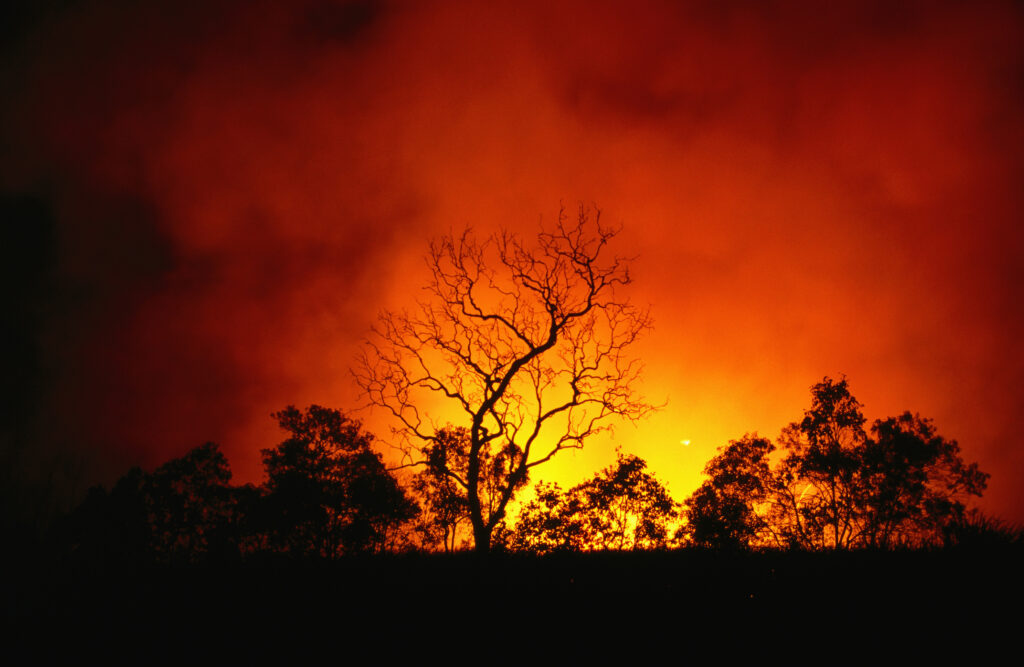ARLINGTON HEIGHTS, IL (June 8, 2023) – As a result of prevailing wind currents, seasonal wildfires in Canada are blanketing East Cost American cities with smoke, triggering air quality alerts.
Rather than focusing discussion on what the real or imagined harms may be, how to mitigate them, and how to help people, climate activists are taking the opportunity to blame “climate change” for the smoke. The reality is wildfires are becoming less frequent and severe as the planet modestly warms. As wildfires become less frequent, it is nonsensical to blame the few wildfires that remain on climate change.
The following statements from climate and energy experts at The Heartland Institute – a free-market think tank – may be used for attribution. For more comments, refer to the contact information below. To book a Heartland guest on your program, please contact Director of Communications Jim Lakely at [email protected] and 312/377-4000 or (cell) 312/731-9364.
“Peer-reviewed studies and verified satellite observations show beyond a shadow of a doubt that wildfires in the long term, mid term, and short term have become less frequent and less severe as the Earth modestly warms. The likely reason is the measured increase in evaporation from the world’s oceans, which has resulted in more frequent global precipitation. Climate activists embarrass themselves when they claim that the fewer wildfires that still do occur must be caused by climate change and are proof of a climate crisis.”
James Taylor
President
The Heartland Institute
[email protected]
“The prevailing winds at present are responsible for the smoke along the Northeastern U.S. coast and has nothing to do with climate change. Nor are the wildfires in Canada unusual or unusually large. Wildfires have been common in Canada throughout history and its wildfire season starts earlier than in the United States and peaks, typically in late-May to early June. Globally, and in Canada, data show that the amount of acreage lost to wildfires has declined in recent decades, even as the Earth has modestly warmed. Research indicates that part of the decline is likely due to climate change. Peer reviewed research by the Canadian Forest Service reported that warming since 1850 has resulted in a decline in wildfires due to the carbon dioxide fertilization effect improving soil moisture.
“The only thing historic about the present wildfires in Canada is the hysteria it is generating in the mainstream media centers on the East Coast due to the present wind direction. Climate Change is not a factor.”
H. Sterling Burnett, Ph.D.
Director, Arthur B. Robinson Center on Climate & Environmental Policy
The Heartland Institute
Managing Editor, Environment & Climate News
[email protected]
“While irresponsible politicians such as Rep. Alexandria Ocasio Cortez (D-NY) rush to blame the Canadian wildfires and the resulting smoke in New York City on climate change, the simple fact of the matter is that such fires and darkening of the skies in the Northeast have occurred before. On May 19, 1780, the daytime skies darkened over New England states and parts of eastern Canada. The primary cause is believed to have been a combination of smoke from forest fires in the Algonquin Provincial Park in Ontario and weather conditions. Called ‘New England’s Dark Day,’ this occurred well before the industrial revolution and climate change were even a glimmer in the eye of science.
“AOC and other pundits appear clueless about history, and even more so about what constitutes a climate crisis.”
Anthony Watts
Senior Fellow
The Heartland Institute
[email protected]
The Heartland Institute is a national nonprofit organization founded in 1984 and headquartered in Arlington Heights, Illinois. Its mission is to discover, develop, and promote free-market solutions to social and economic problems. For more information, visit our website or call 312/377-4000.







